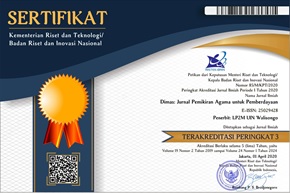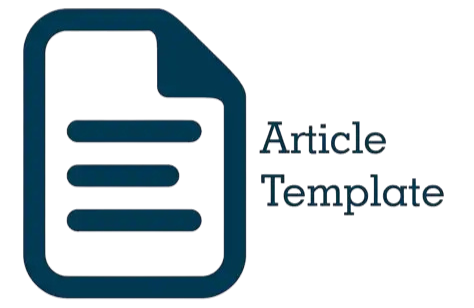Training of Adding Turmeric and Curcuma as Food Additives for Laying Hens
DOI:
https://doi.org/10.21580/dms.2022.222.12997Keywords:
Animal feed, curcuma, laying hens, PAR, turmericAbstract
The use of bioactive plants to replace antibiotics is now widely used. The program's purpose is to provide a solution for natural feed additives to laying hens in Ngaliyan as a substitute for Antibiotics Growth Promotor (AGP), which is prohibited by the government, and provide knowledge to farmers about the use of medicinal plants to improve the productivity of livestock. The target was laying hens farmers in Ngaliyan. The problem was chicken feed is made without AGP and egg prices fell while feed prices had risen. The solution offered to the partner was adding food additives from turmeric and Curcuma. Turmeric and Curcuma will improve immunity to increase livestock productivity, feed efficiency, and egg quality. Based on this reason, we conducted community services for laying hens farmers in Ngaliyan. Community service activities were carried out using the PAR method for two months through socialization, training, assistance in providing additional natural feed, and evaluation. Giving turmeric and Curcuma flour can improve the quality of eggs. The result of the community service showed an understanding of partners to formulate and produce feed additives in raising laying hens was improved. In addition, farmers were able to formulate and produce herbal feed based on requirements.
Downloads
References
Adebisi, A. A., Akintunde, Y., & Martha, O. (2021). Nutritive value and phytochemical screening of turmeric and clove as a potential phyto-additive in livestock production. Nigerian Journal of Animal Science, 23(2), 142–152. https://www.ajol.info/index.php/tjas/issue/view/20270
Anedea, T., Wahyudin, W., & Surasa, S. (2021). Training Pembuatan Pakan Ternak Ayam Kampung Dengan Menggunakan Teknik Permentasi Untuk Meningkatkan Kandungan Protein Dan Menghilangkan Bau Pada Kotoran Ayam Di Ponpes Alqur’an Yatim Himmatul ‘Ulya Kecamatan Warunggunung Kabupaten Lebak. Dedikasi Pkm, 2(2), 228. https://doi.org/10.32493/dedikasipkm.v2i2.9768
Ansah, W. A., Insulistyowati, A., & Monica, M. (2020). Penggunaan Tepung Kunyit (Curcuma Domestica Val) dan Tepung Jahe (Zingiber Officinale) dalam Air Minum terhadap Kualitas Fisik Daging Ayam Broiler. Prosiding Hasil Penelitian Dan Pengabdian Kepada Masyarakat Seminar Nasional II. Fakultas Peternakan Universitas Jambi, November, 238–241.
Anugrah, R. A., & Ramadhan, C. S. (2019). Pengolahan Limbah Jagung untuk Pakan Ternak. BERDIKARI : Jurnal Inovasi Dan Penerapan Ipteks, 7(2), 130–138. https://doi.org/10.18196/bdr.7265
Arulnathan, V., Heidari, M. D., & Pelletier, N. (2022). Internal causality in agri-food Life Cycle Assessments: Solving allocation problems based on feed energy utilization in egg production. Journal of Environmental Management, 309, 114673. https://doi.org/10.1016/j.jenvman.2022.114673
Cheng, M., McCarl, B., & Fei, C. (2022). Climate Change and Livestock Production: A Literature Review. Atmosphere, 13(1). https://doi.org/10.3390/atmos13010140
Dai, C., Lin, J., Li, H., Shen, J., Shen, Z., Wang, Y., & Velkov, T. (2022). The Natural Product Curcumin as an Antibacterial Agent: Current Achievements and Problems. Antioxidants, 11(3). https://doi.org/10.3390/antiox11030459
Ekore, D. O., Onanga, R., Nguema, P. P. M., Lozano, C., & Kumulungui, B. S. (2022). The Antibiotics Used in Livestock and Their Impact on Resistance in Enterococcus faecium and Enterococcus hirae on Farms in Gabon. Antibiotics, 11(2). https://doi.org/10.3390/antibiotics11020224
Hadian, M. S. D., Suganda, B. R., Khadijah, U. L. S., & Anwar, R. K. (2021). River development as a sustainable geo-tourism with a participatory stakeholder approach. Geojournal of Tourism and Geosites, 34(1), 155–163. https://doi.org/10.30892/gtg.34120-631
Kemmis, S., & McTaggart, R. (1990). The Action Research Planner. Deakin University.
Maria Cardinal, K., Kipper, M., Andretta, I., & Machado Leal Ribeiro, A. (2019). Withdrawal of antibiotic growth promoters from broiler diets: performance indexes and economic impact. Poultry Science, 98(12), 6659–6667. https://doi.org/10.3382/ps/pez536
Marwi, F., Sjofjan, O., Mutaqin, A., & Natsir, M. H. (2021). The Effect of Phytobiotics Supplementation and Magnetized Drinking Water on Production Performance and Egg Quality of Laying Hens. Jurnal Ilmu Dan Teknologi Hasil Ternak, 16(2), 95–104. https://doi.org/10.21776/ub.jitek.2021.016.02.3
McKernan, J. (1991). Curriculum Action Research: A Handbook of Methods and Resources for the Reflective Practitioner. Routledge.
Nagar, M. K. (2021). Effect of Turmeric (Curcuma longa) Powder and Synbiotic as Alternative to Antibiotic Growth Promoter on the Growth Performance and Mortality of Broiler Chicks. Journal of Animal Research, 11(1), 125–130. https://doi.org/10.30954/2277-940x.01.2021.22
Ni Sri Yuliani, Gerson Yohanes Imanuel Sakan, M. D. S. R. (2020). Pemanfaatan Tanaman Herbal Untuk Mencegah Penyakit Ayam Broiler di Kelompok Peternak Desa Noelbaki. Logista Jurnal Ilmiah Pengabdian Kepada Masyarakat, 4(2), 347–355.
Ningsih, S., & Rahayu, F. (2021). Pemanfaatan Limbah Kulit Durian sebagai Bahan Pengganti Kapas atau Dakron Bersama Komunitas Kapuk Durian. Jurnal Abdi Mas Adzkia, 2(1), 28–34. https://doi.org/10.30829/adzkia.v2i1.9440
Putri, R. I., Fauziyah, M., Rifa’i, M., Adhisuwignjo, S., & Yulianto, Y. (2021). Pemanfaatan Panel Surya untuk Sistem Penerangan Kandang Ayam di Kepanjen, Kabupaten Malang. Aptekmas Jurnal Pengabdian Kepada Masyarakat, 4(3), 89–93. https://jurnal.polsri.ac.id/index.php/aptekmas/article/view/3944
Rahayu, W. S., Tjiptasurasa, & Indriyani, D. (2010). Kurkuminoid, Penetapan Kadarnya Pada Jamu Serbuk Temulawak (Curcuma Xanthorriza Roxb) Secara Spektrofotometri Ultraviolet-Visibel. Pharmacy: Jurnal Farmasi Indonesia, 7(2), 131–137. https://doi.org/10.30595/pharmacy.v7i1.566
Rahmat, E., Lee, J., & Kang, Y. (2021). Javanese Turmeric (Curcuma xanthorrhiza Roxb.): Ethnobotany, Phytochemistry, Biotechnology, and Pharmacological Activities. Evidence-Based Complementary and Alternative Medicine, 2021, 1–15. https://doi.org/10.1155/2021/9960813
Ribeiro, G. R., de, O. M. A., Castro, O. H., Lima, D. S. C. O., Azevedo, M. L., & de, O. M. C. (2021). Turmeric Powder in the Diet of Japanese Quails Improves the Quality of Stored Eggs. Revista Brasileira de Saude e Producao Animal, 22, 1–18. https://doi.org/10.1590/S1519-99402122052021
Saefulhadjar, D., Supratman, H., & Rusmana, D. (2021). Aplikasi Probiotik Pada Peternakan Ramah Lingkungan Berkelanjutan. Media Kontak Tani Ternak, 3(2), 32–36. https://doi.org/10.24198/mktt.v3i2.32720
Sahara, E. (2020). Peran Jamu Hewan Untuk Antisipasi Penyakit ND (Newcastel Desease) pada Ternak Unggas. Jurnal Pengabdian Sriwijaya, 8(2), 1028–1033. https://doi.org/10.37061/jps.v8i2.12434
Sudgen, F., Agarwal, B., Leder, S., Saikia, P., Raut, M., Kumar, A., & Ray, D. (2021). Experiments in farmers’ collectives in Eastern India and Nepal: Process, benefits, and challenges. Journal of Agrarian Change, 21(1), 90–121. https://doi.org/10.1111/joac.12369
Widiansyah, A. T., & Rahayu, A. B. (2019). Pemberdayaan Peternak Melalui Pembuatan Biogas Sebagai Solusi Limbah Kotoran Ayam Ras Petelur. Dimas: Jurnal Pemikiran Agama Untuk Pemberdayaan, 19(2), 235–246. https://doi.org/10.21580/dms.2019.192.5137
Downloads
Published
Issue
Section
License
Copyright
The copyright of the received article shall be assigned to the journal as the publisher of the journal. The intended copyright includes the right to publish the article in various forms (including reprints). The journal maintains the publishing rights to the published articles. Therefore, the author must submit a statement of the Copyright Transfer Agreement.*)
Licensing

This work is licensed under a Creative Commons Attribution-ShareAlike 4.0 International License.
In line with the license, authors are allowed to share and adapt the material. In addition, the material must be given appropriate credit, provided with a link to the license, and indicated if changes were made. If authors remix, transform or build upon the material, authors must distribute their contributions under the same license as the original.
_______
*) Authors whose articles are accepted for publication will receive confirmation via email and send a Copyright Transfer Agreement.









